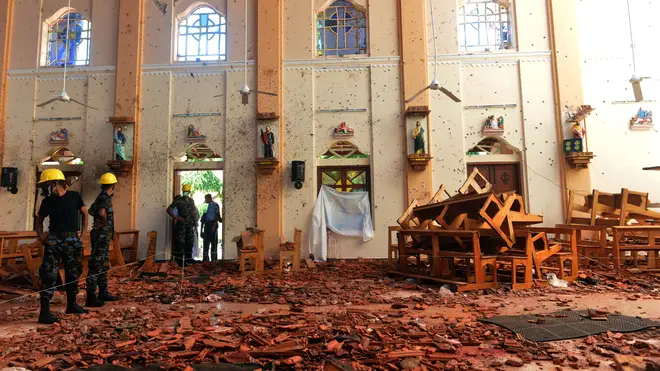
Nick Abbot 10pm - 1am
22 April 2019, 07:40 | Updated: 23 April 2019, 12:01
A former UN Special Rapporteur told LBC that Sri Lanka's counter terrorism strategy is "bound to have been a major factor" in the Easter Sunday attack on churches and hotels.
At least 290 people were killed in a series of explosions targeting churches and tourist hotels, including three British citizens and two people holding joint British and US citizenship.
But a former UN Special Rapporteur on Counter-Terrorism and Human Rights said that counter terrorism strategy may have been a "major factor" in the attack.
Ben Emmerson QC told Andrew Castle that Sri Lanka had "extremely poorly developed counter terrorism strategies" that rely on "systematic torture and other forms of oppression".
He said: "I was there two years ago conducting a review for the united nations of their counter terrorism strategy and it has to be said, and I think it will be said in due course, that poor governance in Sri Lanka is bound to have been a major factor in all of these events.
"It's a country with extremely poorly developed counter terrorism strategies which rely and have relied for many years on the use of systematic torture and other forms of oppression against all of those communities that are in any way suspected of involvement in anti-government activities."

But when the surprise of the scale of the attack was put to him, he said: "Despite the fact that Sri Lanka has many years of violent conflict behind it, for the last 10 years it has been relatively stable and peaceful.
"And even with its legacy of civil war, I think this is the single largest terrorist attack there has ever been in Sri Lanka."